Ever wondered what the origin of the pipe rail system in your greenhouse is? It is an invention of Jaap Zegwaard, a Dutch tomato grower who passed away in January of this year. Last week, a book about his life appeared (in Dutch), telling the story of his greatest invention, supplemented with stories of various people directly involved and stories about horticultural technology today. The title? 'Kan niet, moet toch' - or, in English, 'Impossible. Let's do it.'
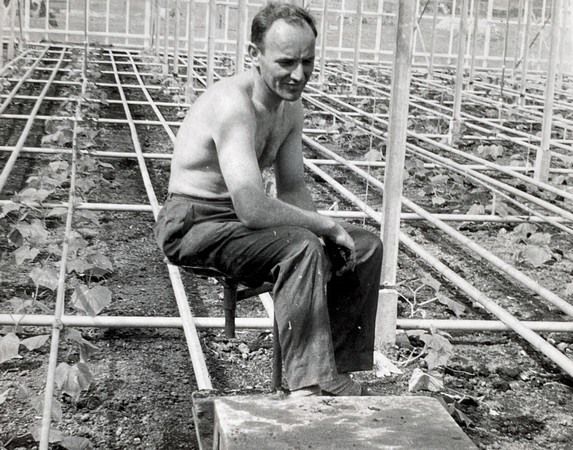
In the 1960s, Jaap Zegwaard was the first grower in the world to lay heating pipes on the ground in greenhouses, which immediately served as a transport system for tubular rail cars. The system had a long run-up, but it made its breakthrough in the 1970s. There was no stopping it then, and by now, it is a common system in greenhouses all over the world.
With his invention, which was revolutionary at the time, Zegwaard laid the foundations for an innovation that has been indispensable to the greenhouse horticulture industry for decades, as he himself predicted at the time. Step into any greenhouse in 2021 and you will see a - naturally evolved - tubular rail system with hypermodern tubular rail trolleys on it. The invention provides numerous advantages, one of the most important being the possibility of upscaling in many aspects.
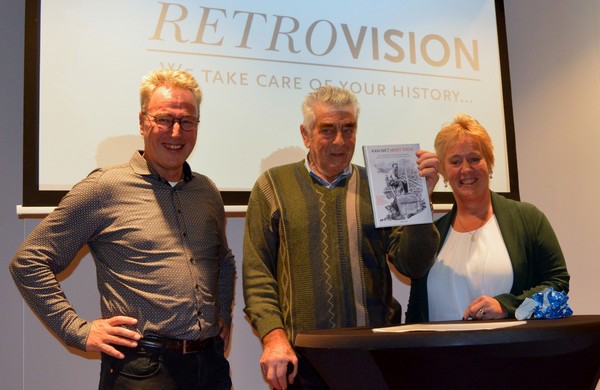
Jan and Jolanda Zegwaard with in the middle Jaap de Jong.
Blood, sweat, and tears
The first copy of the book was for Jaap de Jong, an employee of Jaap closely involved in the process that led to the development of the tube rail system, the Zegwaard system. He could confirm as no other that there was a lot of 'blood, sweat, and tears' involved in the development of the idea into a product. "Tie wraps, straps, everything went through the review process."
In the book, Jaap himself also looks back on his life and the idea behind the invention. Among other things, he says: 'In the garden, I was always thinking about whether something could be done more easily. This is how I came up with the idea of the pipe rail system. Of course, it was very difficult, and some people thought I was crazy, but when people said something was impossible, it motivated me all the more to persevere. That's why I always said: 'Impossible. Let's do it.'"
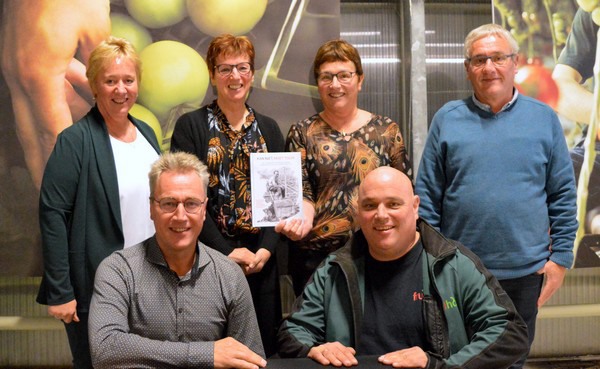
The author of the book, biographer and former townsman Fred Louter, started the project in September 2020 at the request of Jaap's daughter Jolanda. Apart from her father, other older and younger Westland glasshouse horticulture icons are also discussed, such as Arie van den Berg, Leo van Adrichem, Sjef Loomans, and Jack Groenewegen.
Last week, all the Zegwaard children were present to celebrate the happy moment. At the same time, there was a small horticultural reunion, so statements like: 'Oh, Veenman, the bumblebee man' and 'Yes, that's what I thought, you are Arie van den Berg' could soon be heard. The presentation of the book to Jaap de Jong was followed by the presentation of a series of books to others directly involved. Afterwards, people enjoyed a drink and talked about the event, and photographs were taken.
View the photo report here.
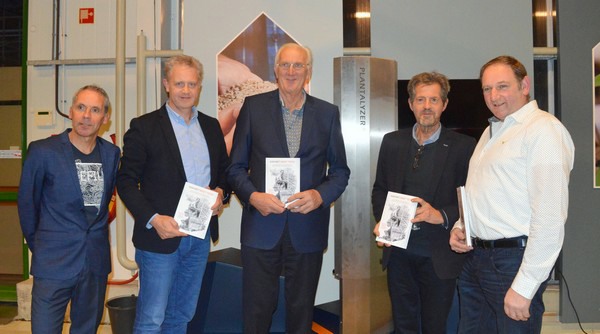
In the middle, Arie van den Berg, the founder of what is now Berg Hortimotive. From left to right, writer Fred Louter, Marco van der Velden, Arie van den Berg, Sjef Loomans and Leo de Jong,
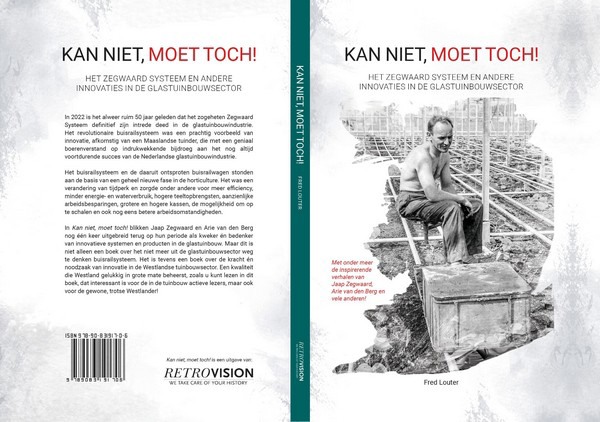
Kan niet, moet toch!' is available at various bookshops and museums in Westland, Maassluis, and Maasland. You can also order it via the webshop of Retrovision Publishers (www.webwinkel.retrovision.nl).
